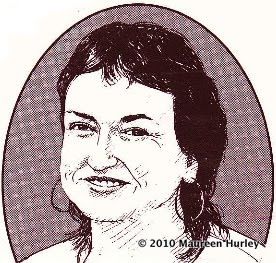Some poets’ landscapes
are too stark for me,
their vistas spare,
deprived in form and content,
so I get hungry at the breaks,
each time a bloodless phrase
is turned, and skinny similes
just ramble dryly on and on.
Too quickly, I begin to crave
cream cheesy themes,
an ample bagel’s verve,
pastrami, lox,
where there’s no heft,
no meat, just desert sand,
a shade like Gulden’s mustard
yet without its zip,
its smooth, cohesive texture.
I long for something solid, then:
good chewy chunks of speech
like Polish sausage, pumpernickel;
yet all I get are tasteless dunes,
bland yucca spears,
a slice or two of cryptic sky.
Mojave pastorals are not for me;
their mesas beckon mainly to
ascetics
who think of substance as a sin,
and that a worthy feast
is made of wind and grit
(no caraway) blown carelessly
across some bleached white
bones of words.
If there’s no piquant pickle’s bite,
no corn-beefy lines to love,
no beaming human being there,
gesticulating at me
from behind the counter’s glass
then, I repeat, reiterate:
a poem isn’t much,
it’s really desiccated,
without a deli in it.
These poems were retyped by Donna Champion—the originals scans have numerous typos which I can't seem to eradicate. Blame it on dyslexia. They were prepared for the Petaluma Art Center's Day of Remembrance and I was double-booked for tow events, so Donna kindly offered to read them. But I was given two different sets of directions and poor Donna was driving around around one dark and storm night with new windshield wipers to deliver these poems of remembrance. By the time she got to the right place, it was too late. Blame it on dyslexia. I didn't catch the error on time. The least I could do is to repost them here. So yes, you will find these poems in Tomcat and Bodies Nearly Touching—but these are certified error-free. More or less. Besides, each poem really should have its own page. If only I can twist Donna's arm to type up some more. Maureen Hurley
